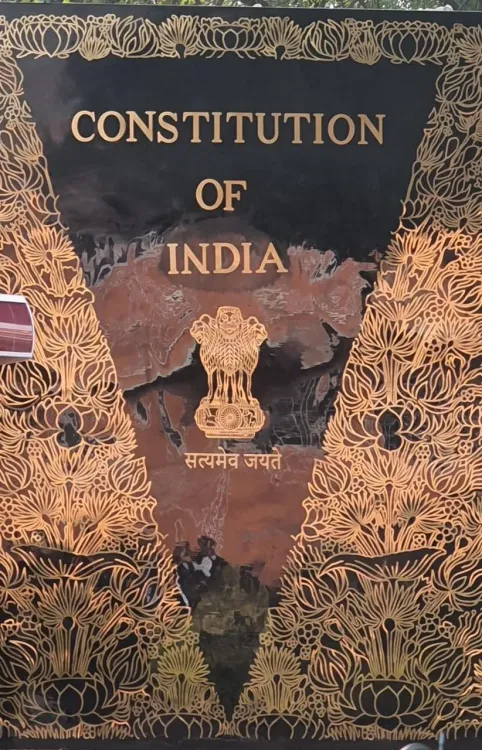Is the Country Governed by the Constitution or Vedas? Congress Responds to Rambhadracharya's SC/ST Remarks

Synopsis
Key Takeaways
- Rambhadracharya's comments have sparked significant controversy.
- Congress emphasizes the importance of the Constitution over religious beliefs.
- Social justice and equality for marginalized communities remain pivotal issues.
- The SC/ST Act plays a crucial role in protecting the rights of these communities.
- Continued reservations are deemed necessary until true empowerment is achieved.
New Delhi, Nov 25 (NationPress) The remarks made by Jagadguru Rambhadracharya on Tuesday have ignited significant controversy as he argued for the repeal of the SC/ST Act, claiming that the Vedas do not reference Avarnas or Savarnas. In response, the Congress party emphasized that the nation is governed by the Constitution, not by any religious texts.
Congress MP Tariq Anwar stated to IANS: "Our nation operates under our Constitution; it is not influenced by the Vedas, the Quran, or the Bible. It is essential for them to comprehend this reality."
Ajay Rai, Congress' UP President, remarked: "Every individual in this nation possesses equal rights—whether they belong to SC/ST, belong to the forward or backward classes, or identify as Dalit, Adivasi, Hindu, or Muslim. Each person is entitled to respect and equality in their right to live."
Pawan Kumar Bansal, a prominent Congress leader, articulated: "We need not look back to Vedic eras. What must be recognized is the historical oppression faced by SCs and STs. Freedom should encompass all individuals, not a privileged few. Despite 70 years of independence, grave disparities and deprivations persist."
He added that the circumstances for these communities continue to be exceedingly challenging.
"We must uphold reservations until these groups achieve equal empowerment. The pursuit of social justice is crucial. Rambhadracharya's statements disregard their rights. Any responsible administration will not endorse such a viewpoint," he conveyed to IANS.
Earlier, Rambhadracharya stated: "The SC/ST Act should be abolished. The Vedas do not mention Avarnas or Savarnas; this caste-based system has been established by political leaders... I advocate for the elimination of caste-based reservations."
The Scheduled Castes and Scheduled Tribes (Prevention of Atrocities) Act, 1989, was implemented to safeguard individuals from these communities against atrocities. It establishes special courts for prosecuting such offenses, stipulates penalties, and includes measures for the support and rehabilitation of victims.
This Act also obligates public officials to fulfill their responsibilities towards SC/ST communities.









